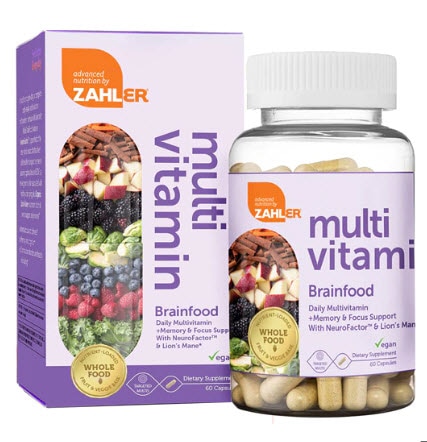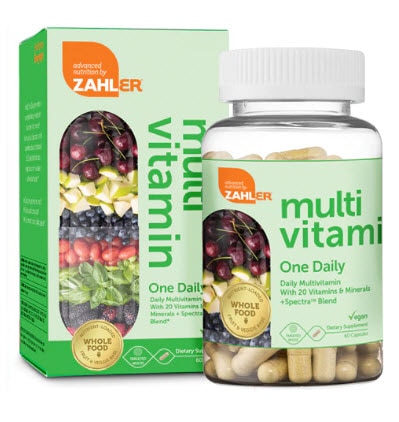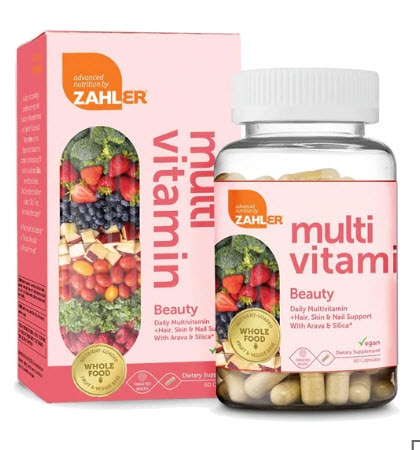Ideally, we’d get all the nutrition we need from real, whole foods. A balanced diet filled with fruits and vegetables, lean protein, whole grains, healthy fats and a little dairy easily fulfills nutrition requirements and helps keep our bodies healthy. But the truth is, most people aren’t eating this way. Though access to wholesome food is better today than it’s ever been, much of what we actually end up eating is processed, modified, engineered, preserved and tainted with pesticides and other chemicals. This results in poor nutrition and, potentially, health issues developing over time.
It’s not hard to realize that we’re on an unhealthy track. Think about your great grandparents and what they had in their cupboards. They cooked with real ingredients, plants and herbs that provided true nutrition and sustenance. The processed and chemical-laden foods we eat today are lacking in nutrients and contain additives that contribute to ill effects on our health. Consider the sugars, salts and preservatives you consume with a processed snack or meal. It’s taking a toll.
That’s where supplementation comes in. If you’re lacking nutrition in your diet, a high-quality, complete supplement can provide the vitamins, minerals and other nutrients your body needs to function optimally.
How to Know What Supplements to Take
If you’re considering taking dietary supplements, it can be hard to know what to choose. You don’t want to just grab any bottle from the store shelf or buy something because it’s on sale or the label looks pretty. These pointers will help you shop wisely, whether you’re looking for a daily multi, a stand-alone vitamin or a formula that targets particular nutrition needs.
1. Look for ingredients that are sourced naturally.
In the past, vitamins were recreated in laboratories and thought to be equally as effective as their naturally occurring counterparts. New research, however, shows that the body makes better use of vitamins in their naturally occurring forms, accompanied by various co-factors and minerals, which are often food in the same foods as the vitamins. That is not usually the case with synthetic supplements.
Today, technology has allowed us to extract the natural dietary goodness of whole foods and package it in supplement form. When choosing a supplement, verify that the vitamins are sourced from natural or nature-identical sources. Look for actual food ingredients on the label, as opposed to vitamin names or types. If it’s just a name or type that’s listed, the ingredient may be synthetic. Vitamins from food sources, preferably whole-food sources, are natural.
2. Consider the Daily Value provided.
Don’t let an impressive-looking, extra-long ingredients list be your deciding factor in choosing a supplement. Instead, carefully examine the numbers in the % Daily Value column. Your goal is to reach 100% of the Daily Value for each nutrient.
Keep in mind that you may need more or less than recommended amounts based on your specific dietary and medical needs. If a supplement offers only a token amount of most vitamins, you probably won’t get much out of it. On the other hand, too much of a nutrient may not be a good thing, either. If you notice especially high percentages of certain vitamins and minerals, check with your health care provider to make sure it’s OK for you. (This is especially true for people with medical conditions and/or specific needs.)
3. Keep synergy in mind.
Calcium is best absorbed when paired with vitamin D. Iron is best absorbed alongside vitamin C. Other vitamins and minerals also work better when taken along with certain nutrients. This is known as synergy. Each component may offer benefit on its own but works better when combined with another nutrient. When choosing a multivitamin or other combination formula, keep an eye out for synergistic blends.
4. Choose formulas that fit your personal health goals.
Everyone’s nutrition needs are different, which is why no single supplement or multivitamin is best for all. Factors such as age and gender – and pregnancy and breastfeeding – impact nutritional needs. You might also have a health condition to consider, or maybe you’re taking medications that shouldn’t be combined with certain nutrients.
Luckily, with the range of supplements today, it’s easy to find targeted formulas that will work best for you. Beyond a multivitamin, you may be interested in a sleep supplement, something for stress stress support or a formula that promotes cardiovascular wellness.
It’s always a good idea to discuss supplementation with your healthcare provider, especially if you have health issues or other special needs.
5. Buy supplements from brands you can trust.
There are many reasons to avoid buying bargain supplements from lesser-known brands: they may contain inferior ingredients; they may not meet safety or manufacturing standards; they may make claims that just don’t stand up. That’s why it’s important to take time to research brands before you purchase their products.
Zahler is a third-generation family-owned company that’s dedicated to producing the premium quality, scientifically backed and superiorly sourced supplements. When you choose Zahler , you can rest assured that you’re getting not only the best and purest ingredients in every product, but you’ll also reap the benefits of formulas developed with input from scientists, doctors and nutritionists who strive to bring real health solutions to all.




